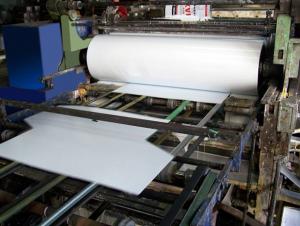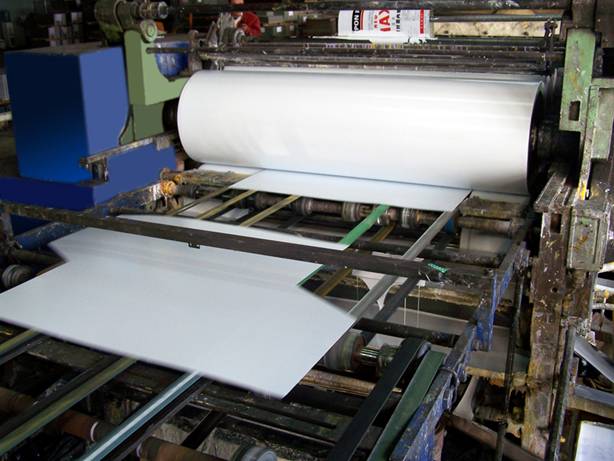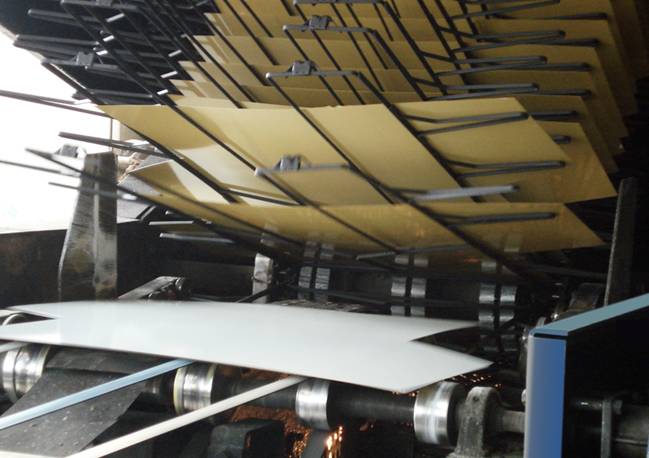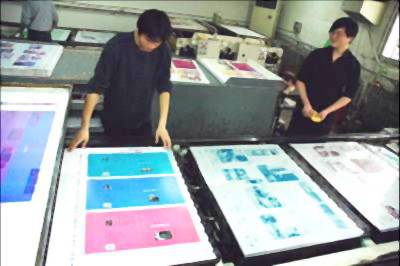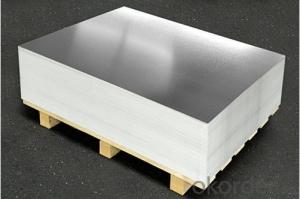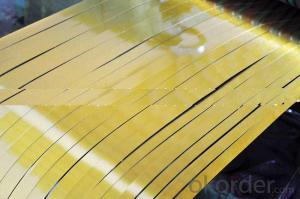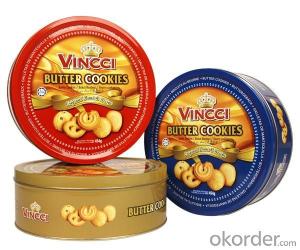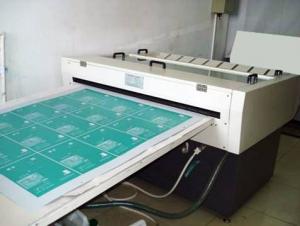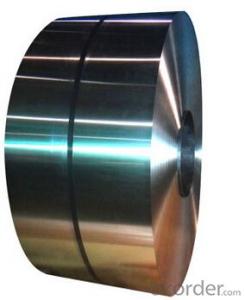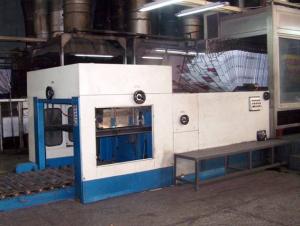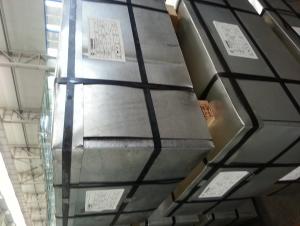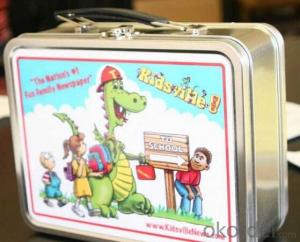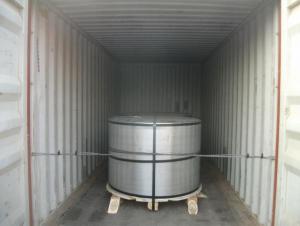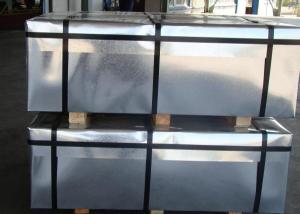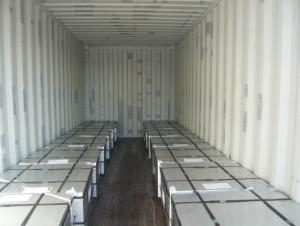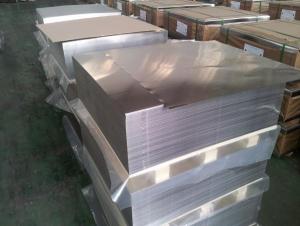Printing and Coating Tinplate for Metal Printing
- Loading Port:
- China main port
- Payment Terms:
- TT OR LC
- Min Order Qty:
- 25 m.t.
- Supply Capability:
- 30000 m.t./month
OKorder Service Pledge
OKorder Financial Service
You Might Also Like
1. Product Description:
Tinplate is widely used for making all types of containers such as artistic cans, tea cans, painting cans, chemical package cans and metal printing etc. Its applications are not limited to containers; recently, they have also been used for making electrical machinery parts and many other products.
2. Product Features:
Fully Automatic
Beautiful Appearance
Excellent Paintability & Printability
Excellent Formability & Strength
Excellent Corrosion Resistance
Excellent Solderability & Weldability
3. Product Parameters:
Technical standard | JISG3315 and GB/T24180 - 2009 (BS EN 10202:1990) |
Steel Type | MR / SPCC |
Thickness | From 0.15mm to 0.50mm (Tolerance +/- 0.01mm) |
Width | Normally 600-1050mm (Tolerance +3/-0 mm) |
Coating | Total chromium min 30mg/m2 max 140mg/m2 |
Temper & Annealing | T1-T5, DR7-8, TS230-TH435, T49-T65(+/- 4) |
Surface Treatment | Bright & Fine Stone & Stone & Silver & Matt |
Payment terms | Letter of Credit (L/C), Telegraphic transfer (T/T) |
Price terms | CFR & CIF price term |
Delivery time | Within 60 days after received L/C or T/T down payment |
Packing | High quality shipping packing which contains thin plastic film, rust-proof paper, metal cover, metal angles and strap sand pallet. |
Minimum order Quantity(MOQ) | 25 metric tons (1X 20'' container) |
4. FAQ:
Q1: What is your delivery time?
A: Generally, the delivery time is 70 days after receive the deposit, special specification may take more time.
Q2: What is the payment term?
A: We accept both T/T and L/C. Most customers pay by T/T.
Q3: What kind of after-sevices do you provide?
A: If it is not big problem, we can solve it by emails, phone etc. Or we went to your company to slove it in person.
5. Product Pictures:
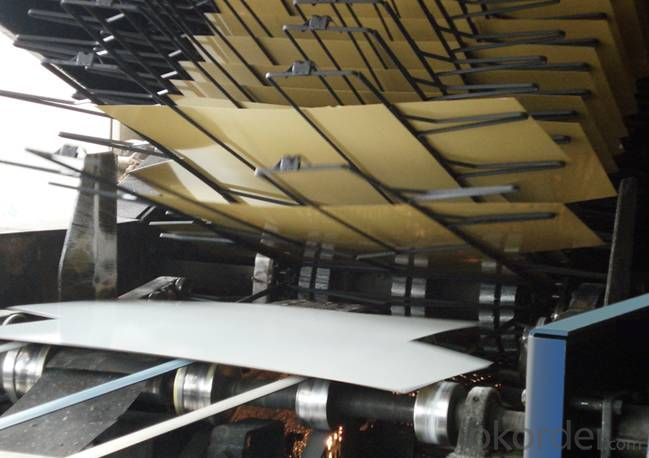
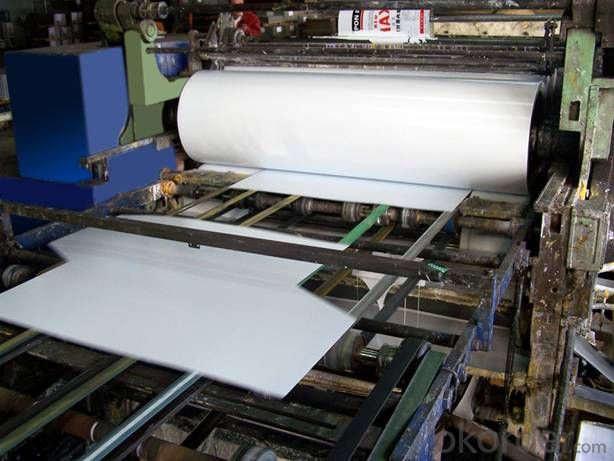
- Q: How is tinplate affected by different types of cosmetics?
- Tinplate, which is a thin steel sheet coated with a layer of tin, is generally resistant to the effects of different types of cosmetics. However, certain cosmetics that contain high levels of acids or alkalis can potentially cause corrosion on the tin coating. Additionally, prolonged exposure to certain chemicals or solvents found in cosmetics may lead to slight discoloration or tarnishing of the tinplate. Therefore, it is important to choose cosmetics that are formulated to be safe for use with metal packaging, and to avoid prolonged contact between cosmetics and tinplate to maintain its appearance and integrity.
- Q: What are the different ways to open tinplate cans?
- There are several different ways to open tinplate cans. The most common method is to use a can opener, which is a handheld device specifically designed for this purpose. Another option is to use a knife or a pair of scissors to carefully pierce and cut open the lid. In some cases, cans may have pull tabs or easy-open lids that can be peeled back without the need for any tools. Additionally, there are electric can openers available that automate the process for convenience.
- Q: What are the different ways to recycle tinplate containers?
- There are several ways to recycle tinplate containers. One way is to separate the tinplate from other materials, such as plastic or paper, and then melt it down to be reused for manufacturing new tinplate products. Another method involves crushing the containers to reduce their size, which makes it easier to transport and process them at recycling facilities. Additionally, tinplate containers can be repurposed for various uses, such as storage or organization, before eventually being recycled.
- Q: How does tinplate compare to other types of packaging materials?
- Tinplate offers several advantages compared to other types of packaging materials. It provides excellent durability, as it is resistant to corrosion, impact, and temperature variations. Tinplate also offers superior barrier properties, ensuring that the product inside remains fresh and protected from external factors such as light, oxygen, and moisture. Additionally, tinplate is highly recyclable, making it an environmentally friendly option. Its versatility allows for various decorative options, making products more visually appealing. Overall, tinplate stands out for its combination of strength, protective qualities, sustainability, and aesthetic appeal, setting it apart from other packaging materials.
- Q: How is tinplate manufactured?
- Tinplate is manufactured through a process called electroplating, where a thin layer of tin is deposited onto a steel sheet. The steel sheet is first cleaned and then passed through an electrolyte bath containing tin salts. Electric current is then applied to the bath, causing the tin ions to be attracted to the steel sheet and form a uniform coating. This tin coating provides corrosion resistance and enhances the appearance of the steel sheet, making it suitable for various applications such as food cans and packaging materials.
- Q: What are the main applications of tinplate in the beverage industry?
- Tinplate is commonly used in the beverage industry for the production of cans and containers. Its main applications include packaging for carbonated drinks, beer, fruit juices, and other beverages. Tinplate provides excellent protection against corrosion, ensuring the freshness and quality of the product. It also offers high strength, easy formability, and good printability, making it an ideal choice for branding and product differentiation. Moreover, tinplate cans are easily recyclable, contributing to sustainability efforts in the industry.
- Q: How is tinplate tested for quality control?
- Tinplate is tested for quality control through a series of rigorous assessments including visual inspection, coating thickness measurement, adhesion testing, corrosion resistance evaluation, and mechanical property analysis.
- Q: Can tinplate be used for pharmaceutical packaging?
- Yes, tinplate can be used for pharmaceutical packaging. Tinplate is a type of steel coated with a thin layer of tin, which provides excellent protection against corrosion and ensures the integrity and safety of pharmaceutical products. It is commonly used for the production of cans, containers, and closures, making it a suitable choice for pharmaceutical packaging due to its durability, resistance to light and moisture, and ability to maintain product quality and safety.
- Q: Can tinplate packaging be used for pharmaceutical products?
- Yes, tinplate packaging can be used for pharmaceutical products. Tinplate is a commonly used material in the pharmaceutical industry due to its durability, corrosion resistance, and ability to protect products from light, moisture, and external contaminants. Additionally, tinplate packaging provides an excellent barrier to oxygen and maintains the quality and integrity of pharmaceutical products.
- Q: How is tinplate affected by different types of food products?
- Tinplate is affected by different types of food products in terms of corrosion and reactivity. Some acidic or highly salty foods can cause the tin coating on tinplate to corrode, leading to a metallic taste in the food and potential health risks. However, tinplate is generally considered safe for most food products as it provides a protective barrier against external factors, ensuring product quality and prolonging shelf life.
Send your message to us
Printing and Coating Tinplate for Metal Printing
- Loading Port:
- China main port
- Payment Terms:
- TT OR LC
- Min Order Qty:
- 25 m.t.
- Supply Capability:
- 30000 m.t./month
OKorder Service Pledge
OKorder Financial Service
Similar products
Hot products
Hot Searches
Related keywords
